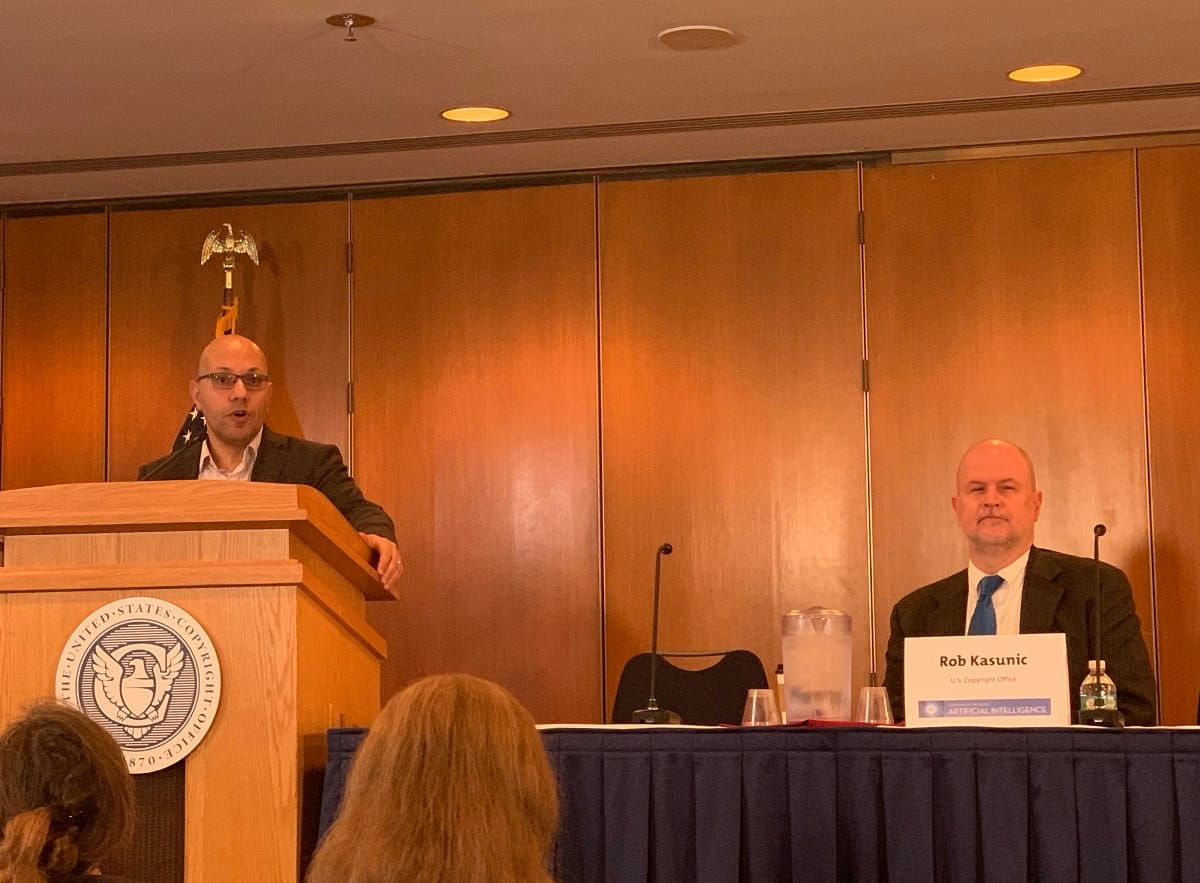Copyright Pros Don’t Know What to Do About Authorless AI Paintings
WASHINGTON, February 5, 2020 – Intellectual property experts on Wednesday puzzled over questions of originality and attribution at a conference hosted at the Library of Congress on “Copyright in the Age of Artificial Intelligence.” Ahmed Elgammal, a computer scientist from Rutgers University, dazzle










Member discussion